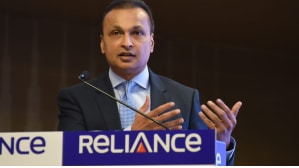Union Budget 2024: Finance Minister Nirmala Sitharaman will announce the Union Budget 2024-25 today. Industry leaders emphasise on building infrastructure and technology for healthcare.
“We expect a budget that fortifies the cornerstone of our nation’s healthcare system. A robust and sturdy healthcare system is essential to India’s economic development. We believe that the budget will place more of an emphasis on building infrastructure and technology for healthcare as well as on hiring qualified medical personnel. Improving these fundamental elements would make it possible to provide better healthcare services and guarantee that underserved areas and low-income individuals are sufficiently serviced,” Dr Vaibhav Kapoor, Co-founder, Pristyn Care told Financial Express.com.
A robust healthcare system is vital for our population’s well-being and the country’s overall growth, Dr. Kapoor said.
“India must strengthen its infrastructure, invest in advanced medical technologies and enable trajectories for upskilling of healthcare professionals. Healthcare technology strengthening can enable doctors to scale up patient care and management and open new pathways to a futuristic care ecosystem,” he said.
Meanwhile, Rahul Cordeiro, CFO, of Wipro GE Healthcare said that in 2023-24, the budget underscored the importance of ‘Atmanirbhar Bharat’.
“Today, India is preparing to become ‘Viksit Bharat’ by 2047. As we set a visionary blueprint for growth, the first Union Budget of the government is particularly significant for healthcare sector. As India aims to become the global manufacturing and MedTech hub, the country needs a promising outlay for the sector to encourage collaboration in R&D and high-end indigenous manufacturing and research. While National Medical Devices Policy 2023, Production Linked Incentive Scheme, Promotion of Research, and Innovation in Pharma MedTech Sector (PRIP) Scheme will help India unlock its full potential, the dependency on import continues to be a challenge,” Cordeiro told Financial Express.com.
We must solve for the persisting headwinds that have long impacted the sector, import dependence being one, he said.
“We are hopeful the budget will answer some critical questions such as – how can we accelerate the pace for ‘Make in India’ by prioritizing sourcing of domestically manufactured MedTech, can rebates to private healthcare providers buying local equipment, especially in underserved areas, incentivize wider adoption, and how can we boost local R&D through Innovation Linked Incentive schemes on the lines of PLI for manufacturing,” he added.
According to Sameer Dashputre, Chief Strategy Officer & Co-Founder, Dozee, delivering quality healthcare across wide geography with limited Human Resources is India’s key challenge.
“Technology is the biggest force multiplier which will enable us to bridge the gap in shorter time and lesser cost. We recommend fund allocation for a dedicated Bharat Healthtech AI for developing and implementing large-scale adoption of indigenous AI-powered technologies. The focus of the AI technologies should be on addressing the shortage of medical skills and mass screening for NCD control,” Dashputre told Financial Express.com.
Moreover, Sajeev Nair, Founder and Chairman, Vieroots the Union Budget 2024 should recognize the indispensable role of technology in shaping the future of healthcare.
“Investments in digital health solutions, telemedicine, and health informatics can bridge the gap between urban and rural healthcare accessibility. The government should consider incentivizing startups that leverage technology to enhance healthcare delivery, ensuring that the benefits of innovation are widespread and not confined to urban centres,” Nair told Financial Express.com.
Additionally, the government should allocate more resources for preventive health measures, including screening, prognosis, and cardiac and cancer risk assessment, given India’s high mortality rates in these areas, he said.
According to Nair, a stronger focus on the ‘Fit India’ movement is crucial, as awareness is the key to success. Just as the government successfully promoted the Swachh Bharat Mission through extensive awareness campaigns, a similar approach should be adopted for the Fit India campaign. With the average age of the Indian population around 30, motivating individuals to stay healthy and fit will significantly boost national productivity.
“Access to quality healthcare should be a fundamental right for every individual, irrespective of socioeconomic status. Achieving universal healthcare coverage requires concerted efforts from both the public and private sectors, along with policy interventions to bridge healthcare disparities. Increased medical education should not solely focus on producing more doctors but also prioritize holistic healthcare delivery,” Nair told Financial Express.com.
Moreover, the government has increased the allocation of Rs 1,100 crore for biotechnology research and development. The output of biotechnology R&D tangibly touches our everyday lives. Biotech innovations in healthcare have led to groundbreaking treatments, improved diagnostic tools, and personalized medicine. Therefore, the government should continue to remain focused on biotechnology R&D to provide better healthcare to society at large, he said.
“The Union Budget 2024 should emphasize preventive health measures, technological advancements, and universal healthcare access. These steps will ensure a healthier, more productive population and a robust healthcare system,” he added.
Tetsuya Yamada, MD, OMRON Healthcare India India’s healthcare system faces a significant challenge due to the increasing burden of non-communicable diseases (NCDs).
“One of the main types of NCD is cardiovascular diseases such as heart attacks and stroke which have hypertension as one of the primary underlying causes. India has more than 220 million people who suffer from high blood pressure, but a WHO study showed that only 15% of them receive treatment. Around 5% of them use a digital BP monitor. This implies that most of them are unaware of their condition, or they don’t get the proper treatment. To effectively address this concern, it is crucial to raise awareness about the issue and its potential solutions, such as the regular monitoring of hypertension and ECG at home, to ensure more proactive health management,” Yamada told Financial Express.com.
We hope that the government will keep in mind the importance of implementing policies and promoting widespread knowledge of preventive care, which can reduce the burden of costs for hospitalization and surgery, he added.
“Additionally, it is equally important to monitor the market and maintain the quality and availability of home healthcare monitoring devices. This will help prevent the circulation of counterfeit medical-grade devices in the market, which could hinder the advancement of healthcare. We anticipate that the Union Budget 2024-25 will reflect a forward-thinking approach including preventive care at home, aligning with industry needs, and ultimately establishing a resilient and advanced healthcare framework,” he pointed out.







